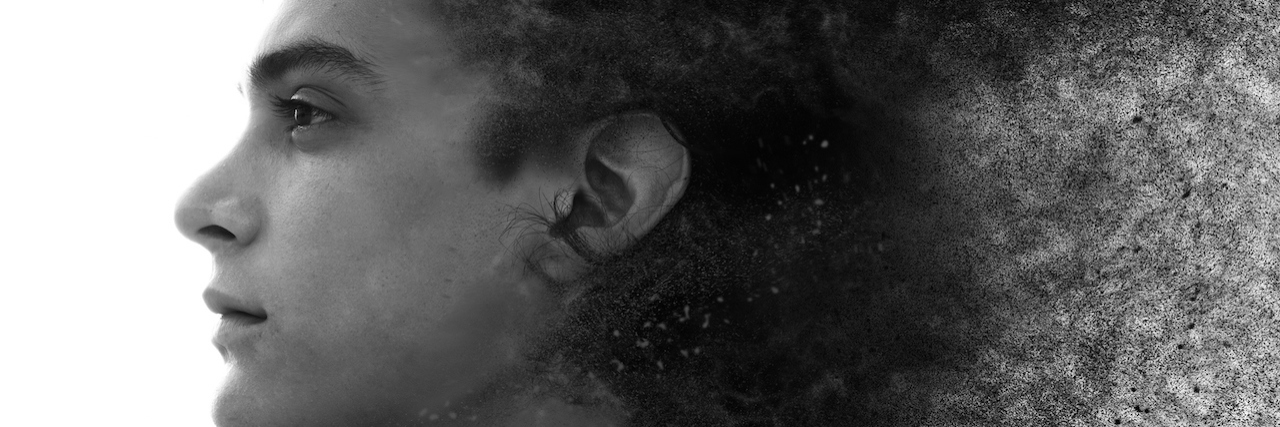I have been told to smile as if my depression is the pouting face of a child who had their favorite toy taken away. They insist that I look on the bright side as if my depression is a cloud of sadness hovering over my shoulder — consuming every piece of my personality and replacing it with a wallowing burden.
For many, many years of my life I felt unheard. I knew that I was ill, but the stigma behind my depression spiraled me into a dark corner. Isolation became my norm. Sleeping the days away, not eating (or eating too much) and hiding from the outside world is how I learned to cope with the trauma.
I am not angry for the struggles I have overcome, though I’m still pacing myself on the journey to recovery. I am angry because I know that somebody reading this is feeling the exact same way — whatever depression or processing trauma means to them, and they do not have the support they need and deserve. I am angry because this illness should not have the potential to be fatal. I am angry that it is against our “norms” as a society to open up to others about our mental health journey, without the fear of being judged or rejected. I am so, so angry that everybody is placed in the same box — that medication and therapy is expected to work the same way for everybody. I’m for medication for those who need it, but I believe it’s not for everybody. It took me years of being on so many medications before a doctor finally explored the root cause and told me that I didn’t have a neurotransmitter problem — so no wonder the medications were making me sicker!
I nearly lost my life to depression in July 2016. It was no day different than the others. I felt like I was this alien who was incapable of functioning as a human — as an adult. I was numb. I was tired. I got tired of throwing punches and let the trauma get the best of me.
My heart stopped beating. I lived the next week of my life in a coma — the prognosis was that I would not make it out alive. I remember waking up and the sheer terror that followed. I will never forget lying awake for four days straight — completely checked out from myself — unable to walk, talk, eat, drink or write. I truly became a prisoner in my own body. My kidneys shut down. I was so afraid of the chronic health conditions that were to follow.
I was released in a wheelchair after two weeks. I still had pneumonia that lasted a good six weeks, and I was very ill for a little over a year after that. The toll was devastating, and the care I received during and after the experience was far inadequate — and only added to the trauma. It took a lot of fight to get from that to where I am today.
I share my truth because I am so grateful to be alive today. I am so grateful for stability, and for the strength that has given me wisdom at such a young age. I am thankful because these experiences have given me a passion to be an advocate — to save a life, to be the person I needed during those dark times. My truth is personal. It is very raw and still difficult to write about to this day. I decided I had to stop running from it and do something good with it. I decided I was going to fight harder, and live in my purpose as an advocate — for fighters like you — the person reading this.
I lost a part of me during that brush with death. Although I gained something much, much more valuable — the understanding of how blessed I am for this life; the understanding that all of this is fleeting; the understanding that you only get one shot at living your very best life. Second chances like these are rare.
I know it is tough. I know you are in pain, and that is OK. It is so very human, and please do not beat yourself up for your experiences. Your truth and your story matters. I care about you so much, and I want you to stick with us and keep up the good fight.
Getty image via Victor_Tongdee

